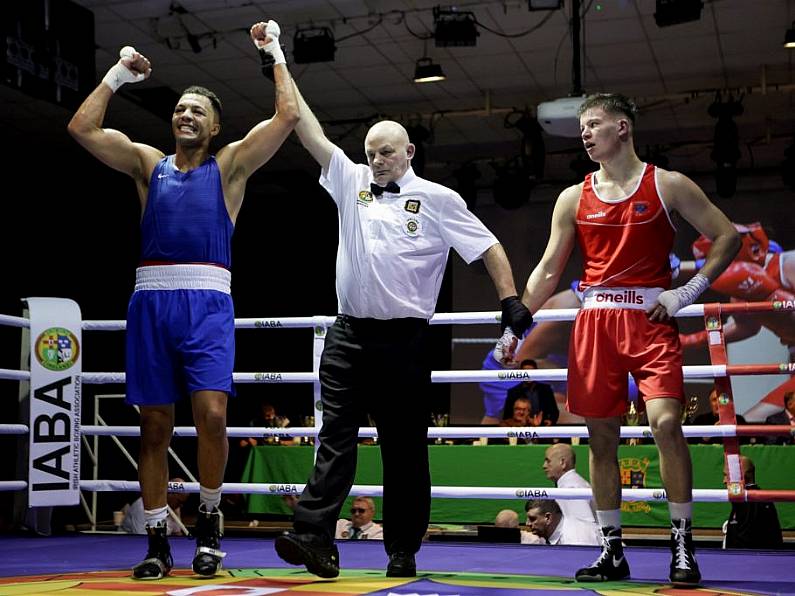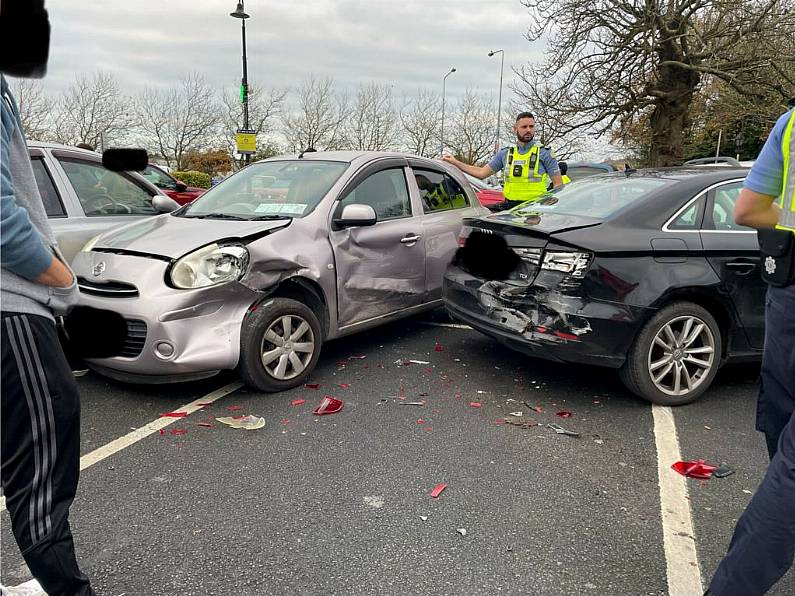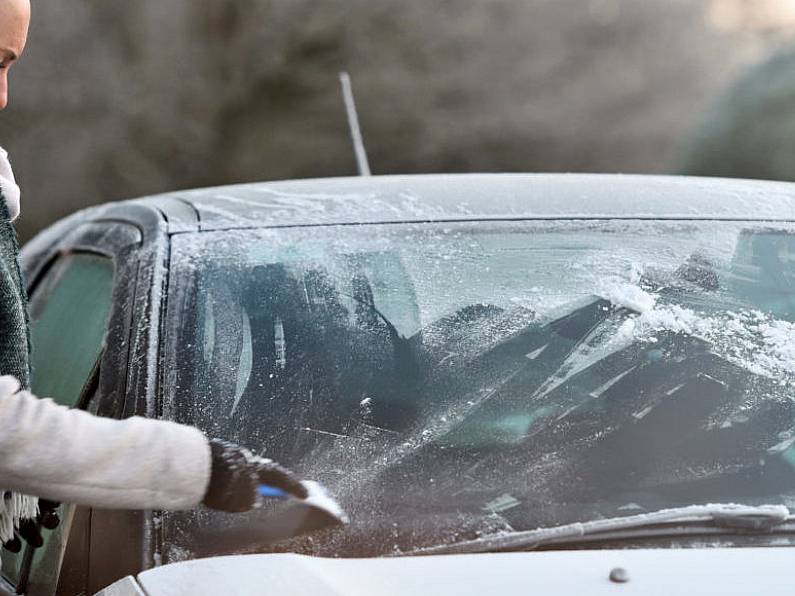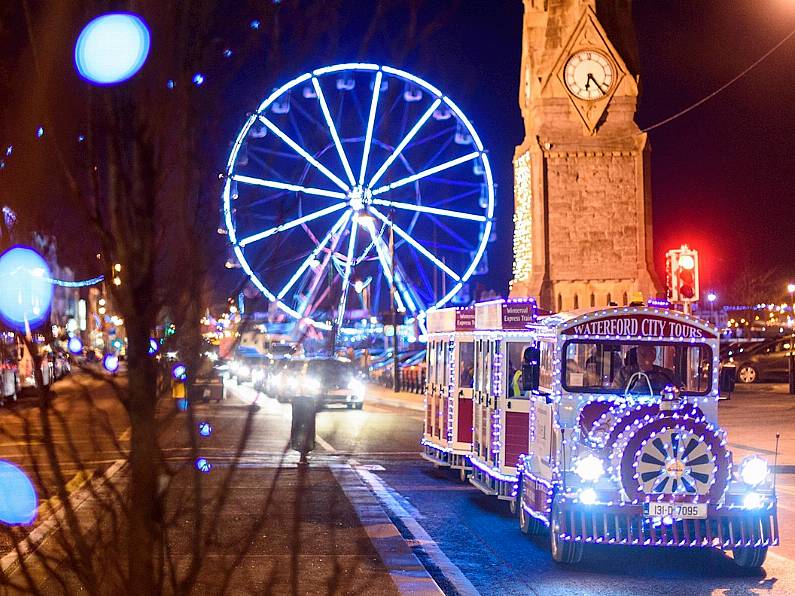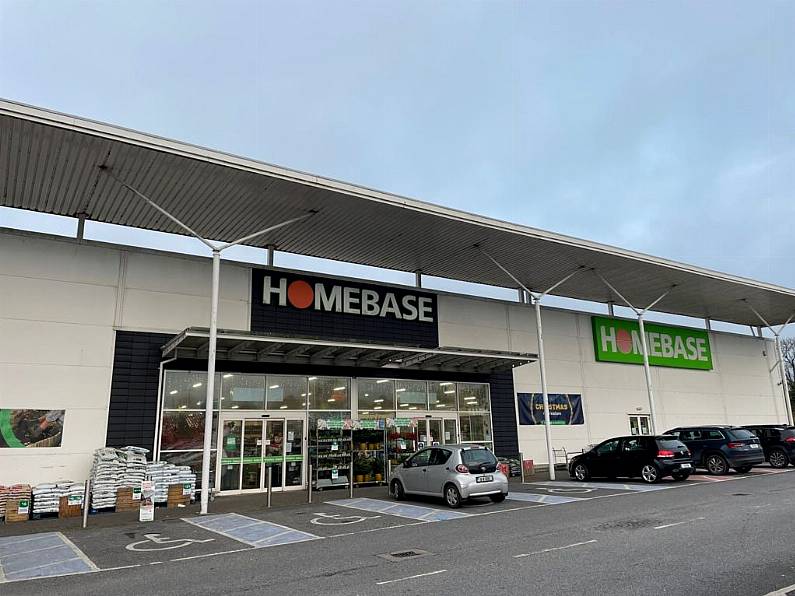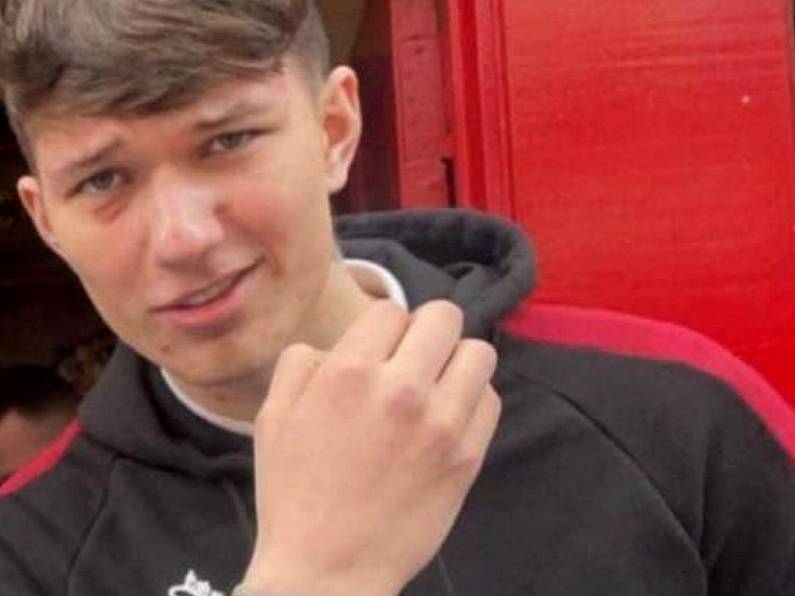Tomas Doherty
The Government has published the final report of the Commission of Investigation into Mother and Baby Homes, laying bare one of the Catholic Church's darkest chapters.
The report, compiled by Judge Yvonne Murphy after six years of investigative work, reveals that 9,000 children died in mother and baby homes between 1922 and 1998, including three-quarters of all the children born or admitted to a home in one year during the second World War.
In all, 15 per cent of the approximately 57,000 children who were in the 18 institutions investigated by the commission died during their time there.
The commission said it considered that there was “evidence of some abuse of children in a number of the institutions.”
It said: “The commission has not heard any evidence of sexual abuse of child residents. It has heard some evidence of physical abuse which, while unacceptable, was minor in comparison to the evidence of physical abuse documented in the Ryan Report.”
The report found that responsibility for the harsh treatment of unmarried mothers in Ireland lies mainly with “their own immediate families”.
It states: “Women who gave birth outside marriage were subject to particularly harsh treatment. Responsibility for that harsh treatment rests mainly with the fathers of their children and their own immediate families. It was supported by, contributed to, and condoned by, the institutions of the State and the churches.
“However, it must be acknowledged that the institutions under investigation provided a refuge – a harsh refuge in some cases – when the families provided no refuge at all.”
Main points
- Approximately 9,000 of the 57,000 babies born in mother and baby homes died
- 56,000 women were incarcerated, 5,616 of them under 18. Some were as young as 12
- The State had the world's highest proportion of women sent to mother and baby homes in the 20th century
- In the 1930s and 1940s, 40 per cent of babies in the institutions died before their first birthdays
- 75 per cent of the children born in Bessborough in 1943 died in their first year. In that same year, 62 per cent of babies born in the Bethany Home died
- From 1946-55, mother and baby homes accounted for 39.6 per cent of deaths of 'illegitimate' children
- No findings of widespread physical abuse despite a number of testimonies of beatings and brutality
- Childbirth was traumatic with poor medical assistance
- Recommends a referendum to change the law to allow adoptees find their families
The report made 53 recommendations, mostly around issues including compensation and memorialisation.
The commission defended the Child and Family Agency (Tusla) and its approach to providing information to adopted people.
“This criticism is unfair and misplaced,” it said. “Tusla is implementing the law and has no choice about doing so. The problem is not with Tusla; it is with the law. Any other agency providing information and tracing services would be in the same position.”
The Cabinet approved the commission’s final report earlier today, and it was then made available for survivors to read.
Minister for Children Roderic O'Gorman said the report was “a landmark moment” for the State, revealing the truth of what happened to thousands of women and children in the homes.
“The report makes clear that for decades, Ireland had a stifling, oppressive and brutally misogynistic culture, where a pervasive stigmatisation of unmarried mothers and their children robbed those individuals of their agency and sometimes their future,” he said.
He added: “Publication of the Commission’s report is an expression of truth. For decades, Irish society was defined by its silence, and, in that, its complicity in what was done to some of our most vulnerable citizens. With its publication, we are affirming that their stories and their truth, will be heard, acknowledged and understood.”
Taoiseach Micheál Martin is set to make a formal State apology to survivors of the mother and baby homes in the Dáil on Wednesday.
The 3,000-plus page report makes for difficult reading, Tánaiste Leo Varadkar said.
“This was an enormous societal failure and an enormous societal shame that we have a stolen generation of children who did not get the upbringing they should have,” he told RTÉ on Monday.
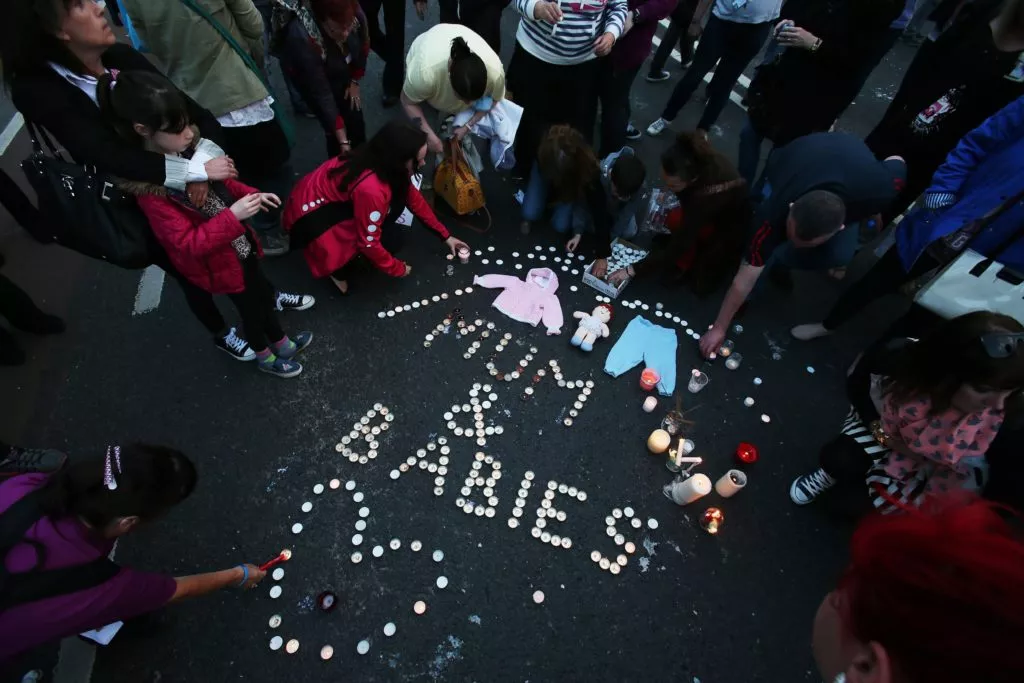
People leave candles and mementos during a march and candlelit vigil in Dublin, in memory of the Tuam babies. File photo: PA
'Chamber of horrors'
The inquiry was launched six years ago after evidence of an unmarked mass graveyard at Tuam, Co Galway was uncovered by local historian Catherine Corless, who said she had been haunted by childhood memories of skinny children from the home.
An interim report from 2017 found that the remains of 802 children, from newborns to three-year-olds, were buried between 1925 and 1961 at the Mother and Baby Home in Tuam.
Then-taoiseach Enda Kenny described the burial site as a “chamber of horrors”.
Government records show that the mortality rate for children at the homes where tens of thousands of women, including rape victims, were sent to give birth, was often more than five times that of those born to married parents.
“My heart is breaking for every survivor,” said Anna Corrigan, whose two brothers John and William Dolan are recorded as having died at the home for unmarried mothers in Tuam.
“We expect, as we have always expected, truth, justice, accountability resulting in prosecutions should they arise and restitution for survivors,” she said ahead of the publication.
While voters have overwhelmingly approved abortion and gay marriage in referendums, the Mother and Baby Home scandal has revived anguish over how women and children were treated in the not-too-distant past.
Pope Francis begged forgiveness for scandals involving the Church during the first papal visit to Ireland in almost four decades in 2018.
The mother and baby homes were the subject of the 2013 Oscar-nominated film Philomena, which charted the failed efforts of Philomena Lee to find the son she was forced to give up as an unwed teenager. – Additional reporting: PA, Reuters
A new webpage with information specifically for former residents of mother and baby homes has been set up
at hse.ie. Additional mental health supports provided by the HSE are also available to former residents. Details of these supports are available on yourmentalhealth.ie.





